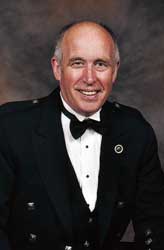There is time enough to learn more before you graduate college in May, especially if it’s not May of 2014. As we mentioned in this space last week, you also have time to unlearn some things.
For instance, earlier this year a young man of my acquaintance proudly announced that he had given up the practice of smoking. After a word of congratulations, I asked why he had elected to quit his habit.
“Time to get a big boy job,” he answered.
It was only then that I realized it was not tobacco he had given up.
Still, it reminded me that, for young people, the habits carried for a lifetime may be only a few years old.
I’m over 40, and I’m still trying to shed the habits of procrastination and the Oxford Comma. It is not going well, but we can always keep trying to unlearn disadvantageous things.
One of the toughest habits to break is the use of certain words. As people depart campus for a new life on the job, or for a summer in a new place with new people, it could be a good time to start fresh in the language department. There’s a pretty substantial list you’ll need to unload if you really want to stand out as an educated and capable person.
The big three are, of course: “like,” “totally,” and “whatever.” These used to be useful words and were often used by speakers of English. Now they have merely become mouth sounds that signify a) your existence, b) your enthusiasm or c) your confusion.
It’s better to say, “I exist, but I can’t think of any words right now,” or “Yay!” or “Duh.” Fans of “The Simpsons” may substitute Homer’s well-known “Doh” with the same effect.
If you want an indoor job, or an outdoor job for which you are given a company car or Jeep, you’ll want to ditch some other popular bits of lingo. This is just a starter list of recommendations for your consideration.
A. Awesome. The birth of a child, a storm out on the desert or your first view of the Pacific (or Lake Michigan, for that matter) can be considered awesome.
A cold beer or chocolate sprinkles on your ice cream, while is possibly quite pleasant, are not things which inspire awe in most of us who work for a living.
Gentlemen: until you are 32 or married (whichever comes first) a pretty girl in a bikini may also be called “awesome.” After that, the correct response is: “What girl, dear?”
B. Impact, or impactful. Things do not have impact; they make an impact. “Impactful” is a word that was given to us by terrorists to deprive us of useful words such as: influential, effective, heuristic, powerful or life-changing. There is no such word as “impactful” except as used by people who are writing blogs on a borrowed desktop computer from their grandmother’s basement.
C. The phrase: “I texted him (or her).” While the sentiment is reasonably clear, the use of the phrase is of questionable value – especially in the world of business.
When someone (your boss?) asks you to ascertain that a given person will be at the 2 p.m. meeting, the answer “I texted him,” may spring to your lips. Stifle it.
People who are charged with accomplishing things only rarely sit around waiting for a gentle electronic “ding” to announce the arrival of your text message.
Call, visit or send the police department, but when the boss says, “Did the check arrive in Los Angeles?” do not answer, “Like, I dunno; like I totally texted them.” That could prove to be your final utterance as an employed person. Like, totally.
There are habits to create, too, and good ol’ Murray State is full of people who hope they have helped you discover new ways to prove to the world just how great an asset you can be. The time is approaching when you’ll find out if it worked, but the habit of improving who you are and what you can do will serve you well for a lifetime.
Editor’s Note: “Other things to unlearn before you go” is part two of a two-part series.
Column by Robert Valentine, Senior lecturer of advertising
































































































